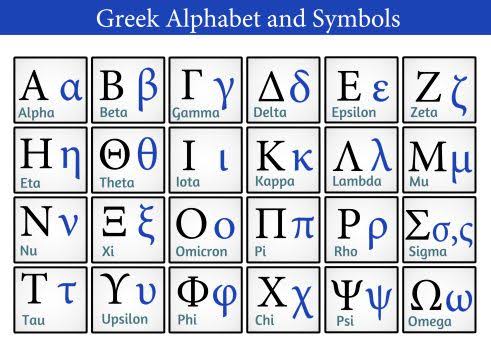
Faith Nyasuguta
One can easily pick out the name of the next Covid-19 variant just by looking at the Greek alphabet.
However, the new Covid-19 variant announced by South Africa on November 23 was named Omicron yet it should have been dubbed ‘Nu’ or ‘Xi’, but these two names were skipped. Why?
Last May, the World Health Organization announced a simple naming system that is easy to say and remember as it follows the letters of the Greek alphabet.
For example, the variant that was detected in the United Kingdom in September 2020 is no longer referred to as the UK strain or the difficult to remember B.1.1.7.
It was named after the first letter in the Greek alphabet, Alpha.
According to the WHO tracking page, there are now 12 different Covid-19 variants with each having a Greek letter.

Immediately South Africa announced the detection of a new variant it would have easily been named after the 13th letter of the Greek alphabet “Nu”, but that did not happen.
The global health organization explained that ‘Nu’ was skipped because it could be mistaken as the English word ‘new.’
This meant that the variant first detected in South Africa should have been dubbed the next letter of the Greek alphabet —Xi.
But again, that was not the case. The WHO said the variant is potentially lethal, posing a high risk of rising infections worldwide and could lead to severe outcomes in some regions.
So, there was no way the variant was going to be named Xi, the name of Chinese President Xi Jinping.
“‘Nu’ is too easily confused with ‘new’. And ‘Xi’ was not used because it is a common last name,” Tarik Jasarevic, a WHO spokesman said, according to the New York Times.
Following that, it was named Omicron, the 15th letter of the alphabet.
Tarik, according to the New York Times also clarified that in assigning names, WHO avoids “causing offence to any cultural, social, national, regional, professional, or ethnic groups.”

Viruses often change via mutations and when a virus has any mutation, it is referred to as a variant of the original virus.
Omicron has been classified as a ‘variant of concern or variant of interest’. The WHO classifies variants under this category due to attributes and characteristics that could require public health action.
WHO says a Variant of Interest (VOI) has genetic changes that are predicted or known to affect virus characteristics such as transmissibility, disease severity, immune escape, diagnostic or therapeutic escape.
“It must have been identified to cause significant community transmission or multiple Covid-19 clusters, in multiple countries with increasing relative prevalence alongside increasing number of cases over time, or other apparent epidemiological impacts to suggest an emerging risk to global public health,” the WHO says.
Separately, a Variant of Concern (VOC) is a variant that meets the definition of a VOI but has been demonstrated to: Increase in transmissibility or detrimental change in Covid-19 epidemiology; Increase in virulence or change in clinical disease presentation; or decrease in effectiveness of public health and social measures or available diagnostics, vaccines, therapeutics.





Recent Comments